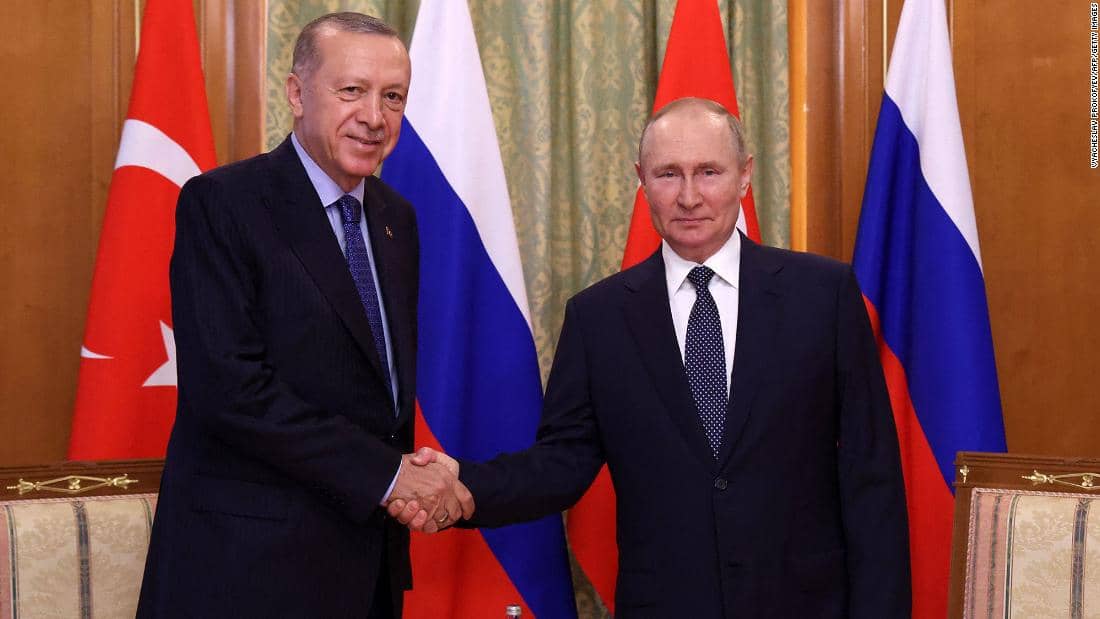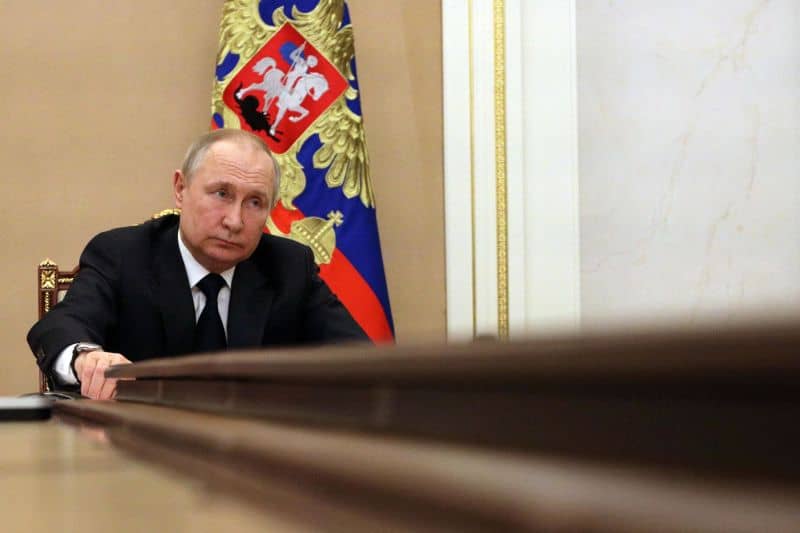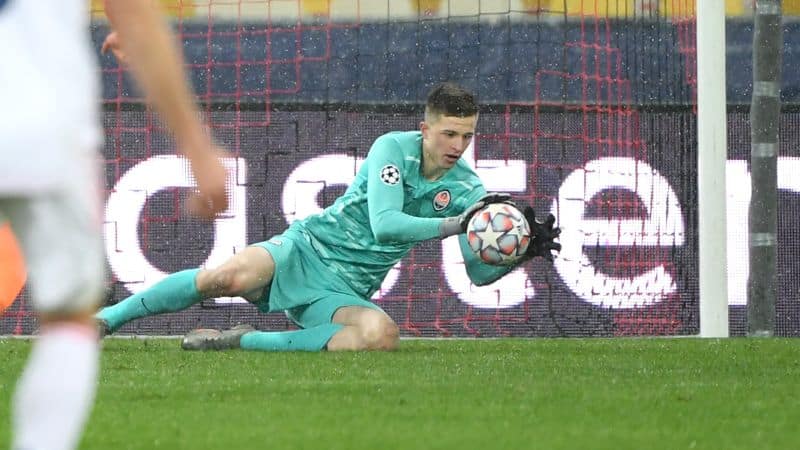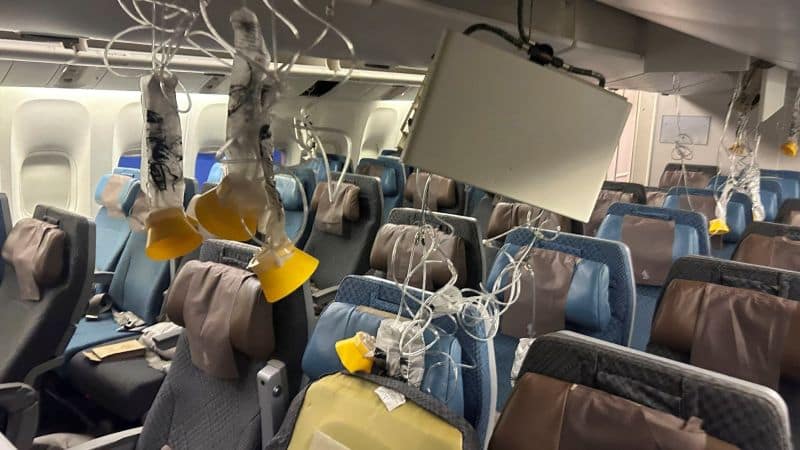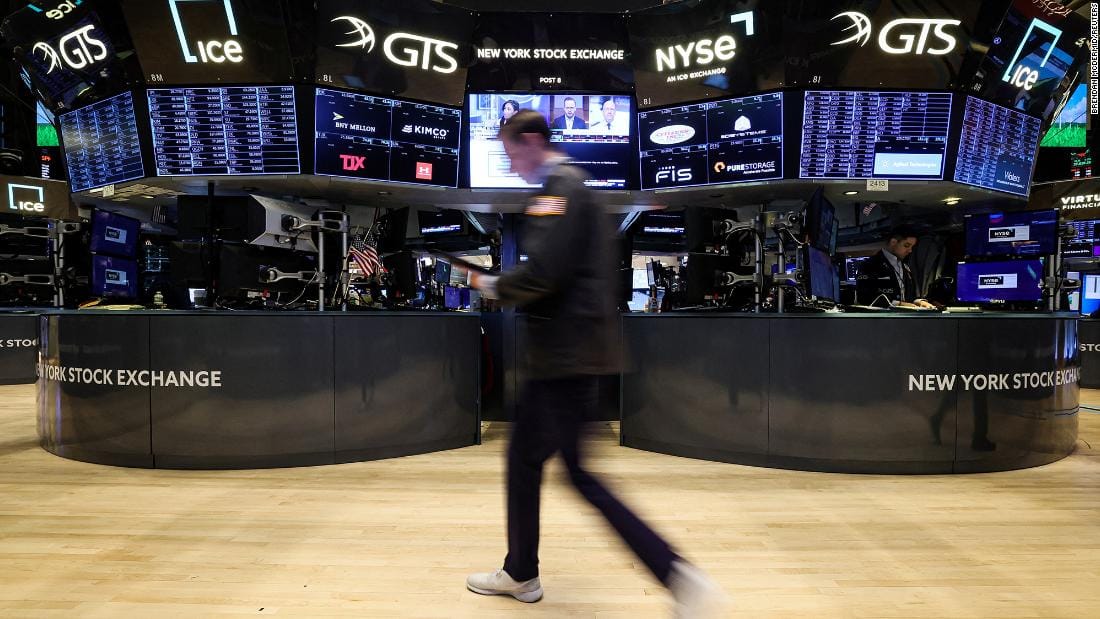But in other ways, some of the region’s countries have prospered immensely as the fighting rages on, adding hundreds of billions of dollars to their coffers. Here are four ways the Ukraine
Live updates: Russia’s war in Ukraine

The last time Chinese leader Xi Jinping and Russian President Vladimir Putin sat down face to face, they declared triumphantly the arrival of a “new era” in international relations.
Amid a Western diplomatic boycott of the Beijing Winter Olympics and a looming crisis in Ukraine, the world’s two most powerful autocrats shared their vision for a new world order: it would better accommodate their nations’ interests, and no longer be dominated by the West.
In a 5,000-word joint statement, the two leaders declared a friendship with “no limits” and spelled out their shared grievances toward the United States and its allies.
“The world is going through momentous changes,” their joint statement said, noting the “transformation of the global governance architecture and world order.”
More than 200 days later, Xi and Putin are to meet again at a regional summit in the city of Samarkand in southeastern Uzbekistan. Much has changed, but not necessarily in ways China or Russia could have predicted.
Three weeks after meeting Xi in Beijing — and just days after the Winter Olympics ended, Putin launched a full-scale invasion of Ukraine. He had expected a quick victory, but seven months in, Russia is far from winning. Its forces are exhausted, demoralized, and fleeing territories they have occupied for months.
And that is making China nervous. Having grown ever closer to Moscow under Xi, Beijing has a direct stake in the war’s outcome. A defeated Russia will strengthen the West and become a less useful and reliable asset in China’s great power rivalry with the US. A weakened Moscow might also be less of a distraction for the US, thereby enabling Washington to focus more squarely on Beijing.
Xi has a fine line to tread. If he leans too much into helping Russia, he risks exposing China to Western sanctions and diplomatic blowback that would harm its own interests. The backlash would also come at a sensitive time for Xi, who is only weeks away from seeking a norm-breaking third term at the 20th Party Congress.
You can read more here
Don't Miss
‘Putin is a killer,’ says Ukraine goalkeeper as he sends a message of hope to his country Shaktar Donetsk and
The aviation tracking site FlightRadar24 says, based on its data, that the turbulence on Singapore Airlines flight SQ321 occurred over
Stocks slid Friday after a slate of earnings beats from big banks fueled concerns that the Federal Reserve will raise
Live updates: Russia’s war in Ukraine

The last time Chinese leader Xi Jinping and Russian President Vladimir Putin sat down face to face, they declared triumphantly the arrival of a “new era” in international relations.
Amid a Western diplomatic boycott of the Beijing Winter Olympics and a looming crisis in Ukraine, the world’s two most powerful autocrats shared their vision for a new world order: it would better accommodate their nations’ interests, and no longer be dominated by the West.
In a 5,000-word joint statement, the two leaders declared a friendship with “no limits” and spelled out their shared grievances toward the United States and its allies.
“The world is going through momentous changes,” their joint statement said, noting the “transformation of the global governance architecture and world order.”
More than 200 days later, Xi and Putin are to meet again at a regional summit in the city of Samarkand in southeastern Uzbekistan. Much has changed, but not necessarily in ways China or Russia could have predicted.
Three weeks after meeting Xi in Beijing — and just days after the Winter Olympics ended, Putin launched a full-scale invasion of Ukraine. He had expected a quick victory, but seven months in, Russia is far from winning. Its forces are exhausted, demoralized, and fleeing territories they have occupied for months.
And that is making China nervous. Having grown ever closer to Moscow under Xi, Beijing has a direct stake in the war’s outcome. A defeated Russia will strengthen the West and become a less useful and reliable asset in China’s great power rivalry with the US. A weakened Moscow might also be less of a distraction for the US, thereby enabling Washington to focus more squarely on Beijing.
Xi has a fine line to tread. If he leans too much into helping Russia, he risks exposing China to Western sanctions and diplomatic blowback that would harm its own interests. The backlash would also come at a sensitive time for Xi, who is only weeks away from seeking a norm-breaking third term at the 20th Party Congress.
You can read more here
Don't Miss
‘Putin is a killer,’ says Ukraine goalkeeper as he sends a message of hope to his country Shaktar Donetsk and
The aviation tracking site FlightRadar24 says, based on its data, that the turbulence on Singapore Airlines flight SQ321 occurred over
Stocks slid Friday after a slate of earnings beats from big banks fueled concerns that the Federal Reserve will raise

Ukraine
Don't Miss
‘Putin is a killer,’ says Ukraine goalkeeper as he sends a message of hope to his country Shaktar Donetsk and
US national security adviser Jake Sullivan confirmed Sunday that the US will allow European countries to start training Ukrainian fighter
A view of the Kremlin in Moscow, Russia, on September 19, 2021. (Alexander Nemenov/AFP/Getty Images) Senior Russian officials at the
Updates in Russia’s war in Ukraine

Latest developments in Russia’s war in Ukraine.
Ukrainian President Volodymyr Zelensky visited newly liberated Izium: Ukrainian forces took back control of the northeastern region of Kharkiv on Saturday. Zelensky thanked the military Wednesday and observed a minute of silence to honor those who had been lost in the war.
Izium’s liberation is a huge strategic blow to Russia’s military assault in the east as it had become an important hub for Moscow to launch attacks southward into the Donetsk region and Kupyansk.
About 8,000 square kilometers (3,088 square miles) of territory has been liberated by Ukrainian forces so far this month, according to Zelensky. Most of this reclaimed land is in the country’s northeast and south, he added.
The counteroffensive is, however, slowing down: Ukraine is liberating swathes of territory from Russia’s occupation in the east, but presidential military adviser Oleksiy Arestovych says the country’s counteroffensive has “slowed down slightly because most of the Ukrainian forces are fighting to capture the city of Lyman, to open our way into the Luhansk region. We will intensify our strikes and liberate new territories in a different way,” he told QT’s Becky Anderson in an interview.
Lyman, an important rail hub, is roughly 60 kilometers (37 miles) west of the strategically important Ukrainian city of Severodonetsk.
The US says Russian forces retreated back across the border: “We’ve seen a number of Russian forces, especially in the northeast, in the Kharkiv region, cross over the border back into Russia as they’ve retreated from the Ukrainian counter-offensive,” Pentagon press secretary Brig. Gen. Pat Ryder told reporters during a briefing Tuesday. But Russian forces still “do exist en masse in Ukraine,” he added.
But Russia has been trying to gain ground in other parts of Ukraine: The Ukrainian military’s General Staff said Ukrainian units had successfully repelled Russian attacks around the city of Bakhmut, while Russian artillery and air force are pounding settlements near the front lines across Donetsk. There was also Russian mortar and tank fire in the Zaporizhzhia region, the General Staff said.
Looting claims: The military claimed that in the south, around the city of Polohy, Russian troops were also stealing private cars. And in Nova Kakhovka, in the Kherson region, Russians “began to massively remove furniture and household appliances from temporarily abandoned settlements.” QT is unable to confirm the military’s claims, but there has been widespread evidence of looting in Kharkiv and other previously occupied Russian areas.
Russian shelling killed at least two people and injured six in Mykolaiv: The head of the region’s civil military administration provided this update, adding that educational institution, infrastructure facilities and residential buildings were damaged in the southern port city near the Black Sea on Wednesday. Ukrainian officials claim that they’ve taken back about 500 square kilometers of territory in the south so far, along the borders of Mykolaiv and Kherson.
Take a look at the territory reclaimed by Ukraine through its counteroffensive
Ukrainian President Volodymyr Zelensky visited newly liberated Izium on Wednesday — five days after the Ukrainian forces took back control of the northeastern region of Kharkiv.
Ukraine’s counteroffensive continues to liberate swathes of territory from Russia’s occupation, with most of this reclaimed land is in the country’s northeast and south, according to Zelesnky.
Take a look at the map of control as it stands currently:

President Zelensky he is “shocked” by seeing destruction in Izium

Ukrainian President Volodymyr Zelensky says he is shocked by what he has seen on his visit to the newly liberated Izium district in Kharkiv.
“What we see is shocking, although we have already seen this in Bucha [near Kyiv], in the first de-occupied territories. Likewise, destroyed buildings, killed people,” he told journalists during the visit. “Unfortunately, this is part of our history today. And this is part of the modern Russian nation – what they did.”
He thanked foreign governments for sending investigators and prosecutors to Ukraine to investigate alleged human rights abuses by occupying forces.
“We all understand that this process takes time … I am sure, there will be verdicts for all this, there will be a tribunal. I don’t doubt it for a second,” he said.
He also expressed confidence that all occupied areas would eventually return to Ukraine.
“We should send signals to our people who, unfortunately, are still under occupation. And my signal to the people in Crimea: we know that these are our people, and it is a terrible tragedy that they have been under occupation for more than eight years. We will return there. I don’t know when exactly. But we have plans,” Zelensky said.
Don't Miss
‘Putin is a killer,’ says Ukraine goalkeeper as he sends a message of hope to his country Shaktar Donetsk and
The aviation tracking site FlightRadar24 says, based on its data, that the turbulence on Singapore Airlines flight SQ321 occurred over
Stocks slid Friday after a slate of earnings beats from big banks fueled concerns that the Federal Reserve will raise

